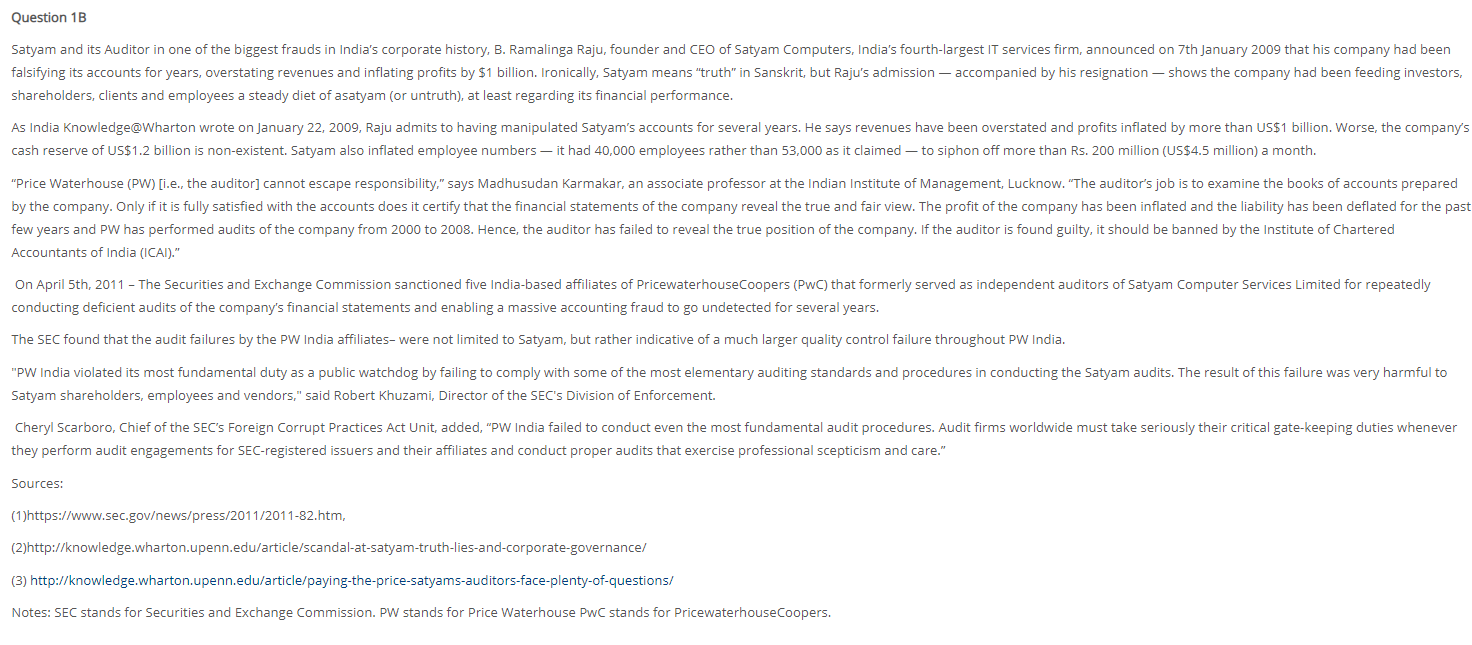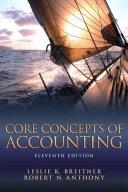Please answer this question.
Question 1B Satyam and its Auditor in one of the biggest frauds in India's corporate history, B. Ramalinga Raju, founder and CEO of Satyam Computers, India's fourth-largest IT services firm, announced on 7th January 2009 that his company had been falsifying its accounts for years, overstating revenues and inflating profits by $1 billion. Ironically, Satyam means "truth" in Sanskrit, but Raju's admission - accompanied by his resignation - shows the company had been feeding investors, shareholders, clients and employees a steady diet of asatyam (or untruth), at least regarding its financial performance. As India Knowledge@Wharton wrote on January 22, 2009, Raju admits to having manipulated Satyam's accounts for several years. He says revenues have been overstated and profits inflated by more than US$1 billion. Worse, the company's cash reserve of US$1.2 billion is non-existent. Satyam also inflated employee numbers - it had 40,000 employees rather than 53,000 as it claimed - to siphon off more than Rs. 200 million (US$4.5 million) a month. "Price Waterhouse (PW) [i.e., the auditor] cannot escape responsibility," says Madhusudan Karmakar, an associate professor at the Indian Institute of Management, Lucknow. "The auditor's job is to examine the books of accounts prepared by the company. Only if it is fully satisfied with the accounts does it certify that the financial statements of the company reveal the true and fair view. The profit of the company has been inflated and the liability has been deflated for the past few years and PW has performed audits of the company from 2000 to 2008. Hence, the auditor has failed to reveal the true position of the company. If the auditor is found guilty, it should be banned by the Institute of Chartered Accountants of India (ICAI)." On April 5th, 2011 - The Securities and Exchange Commission sanctioned five India-based affiliates of PricewaterhouseCoopers (PWC) that formerly served as independent auditors of Satyam Computer Services Limited for repeatedly conducting deficient audits of the company's financial statements and enabling a massive accounting fraud to go undetected for several years. The SEC found that the audit failures by the PW India affiliates- were not limited to Satyam, but rather indicative of a much larger quality control failure throughout PW India. "PW India violated its most fundamental duty as a public watchdog by failing to comply with some of the most elementary auditing standards and procedures in conducting the Satyam audits. The result of this failure was very harmful to Satyam shareholders, employees and vendors," said Robert Khuzami, Director of the SEC's Division of Enforcement. Cheryl Scarboroughe SEC's Foreign Corrupt Practices Act Unit, added, "PW India failed to conduct even the most fundamental audit procedures. Audit firms worldwide must take seriously their critical gate-keeping duties whenever they perform audit engagements for SEC-registered issuers and their affiliates and conduct proper audits that exercise professional scepticism and care." Sources: (1)https://www.sec.govews/press/2011/2011-82.htm, (2)http://knowledge.wharton.upenn.edu/article/scandal-at-satyam-truth-lies-and-corporate-governance/ (3) http://knowledge.wharton.upenn.edu/article/paying-the-price-satyams-auditors-face-plenty-of-questions/ Notes: SEC stands for Securities and Exchange Commission. PW stands for Price Waterhouse PWC stands for PricewaterhouseCoopers.REQUIRED: (a) Explain the concept of 'professional scepticism and care' and its importance in the audit of Satyam. (b) Suggest and explain any TWO (2) ways or methods that auditors of Satyam and other companies could adopt to enhance their professional scepticism. (c) Do you agree with Madhusudan Karmakar's statement that the auditor should be held responsible for Satyam's fraud? Justify your answer. (d) Discuss TWO (2) responsibilities of directors and management according to Malaysian Companies Act 2016 on Financial Statements and Report, which had been breached based on Satyam's case








